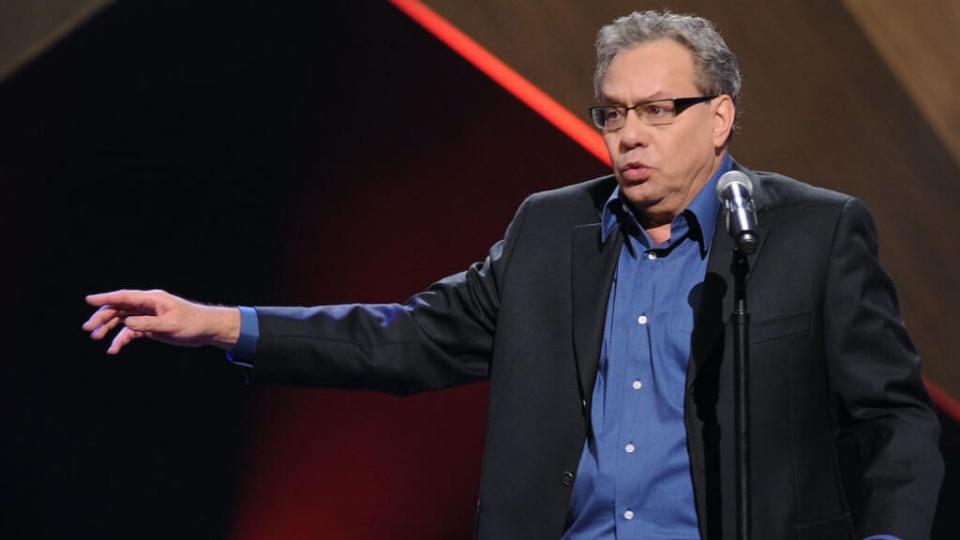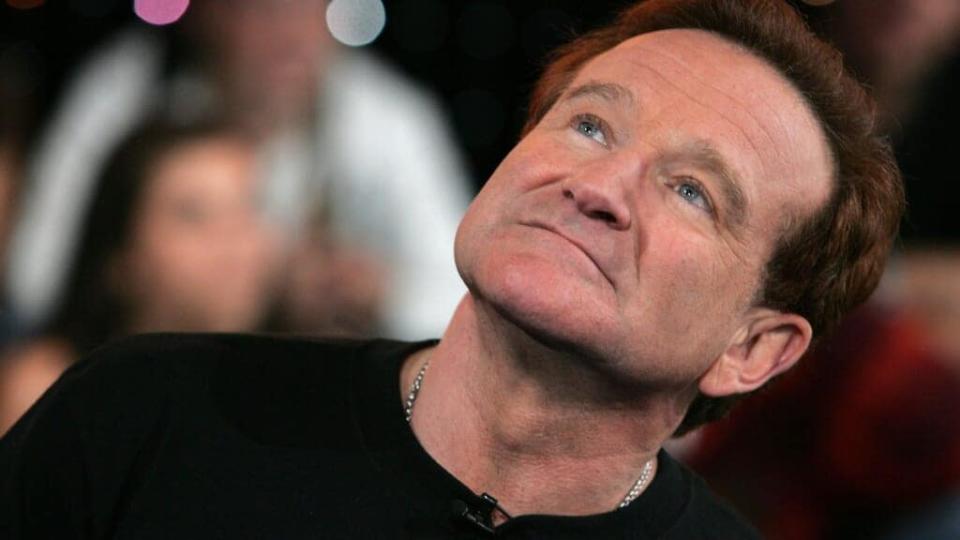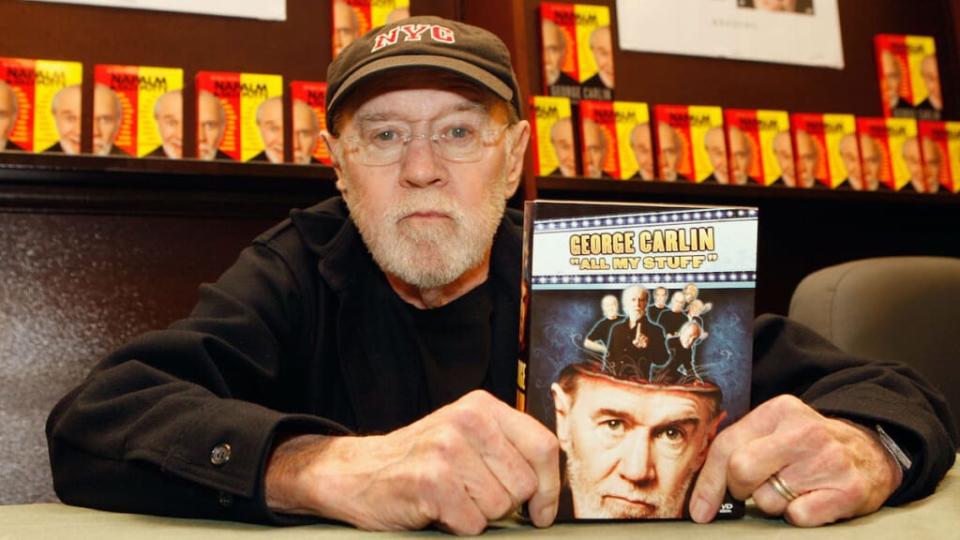Comedians Are Finally Taking on Streamers – and Their Copyright Claims Are No Joke
- Oops!Something went wrong.Please try again later.
- Oops!Something went wrong.Please try again later.
- Oops!Something went wrong.Please try again later.
A mob is forming at the gates of the music-streaming industry — an angry, threatening, albeit quite funny, mob.
Comedians and streaming companies are on the brink of a legal war over copyright payments akin to what the music industry went through over the past two decades. And the opening shots have been fired: Multiple lawsuits against Sirius XM-owned Pandora this year have the potential to significantly upgrade the value of comedy, podcasts and other spoken-word recordings for generations to come, legal experts told TheWrap.
The lawsuits — one from Lewis Black on July 7 and a batch filed in February by several comics including the estates of George Carlin and Robin Williams — are packed with receipts, claiming they’ve been underpaid or stiffed altogether for performances already streamed thousands of times on Pandora. They say Pandora knowingly posted comedy routines without attempting to obtain licenses of any kind, then admitted in regulatory filings that it knew it was taking a risk by offering the material to its more than 55 million users.
“Pandora did what most goliaths do,” the Black lawsuit, filed in U.S. District Court in California, reads. “It decided it would infringe now to ensure it had this very valuable intellectual property on its platform to remain competitive, and deal with the consequences later. Later is now.”
But lurking beneath the surface, accusations of outright nonpayment is a far more significant issue: Whether comedians — like musicians have for more than a century — hold separate copyrights for the recorded performance and the underlying written material. It’s asserted by Pandora, and widely believed among industry experts, that no comedian has ever been specifically paid for both.
Black and Co. have shackled these two issues together, demanding back pay for both performance and literary royalties. Their success could trigger a seismic shift for comedians, podcasters and all spoken-word creators, giving them two separate royalty streams, multiple lawyers said.
Pandora declined to comment to TheWrap or provide access to its executives or legal counsel, pointing to its counterclaim — which accuses the plaintiffs of demanding a “radical” change that amounts to an illegal price-fixing attempt — as its response. Spotify, Apple Music, Amazon Music and other large-scale streamers didn’t respond to queries from TheWrap about their comedy content strategies and how comedians are compensated.
But whatever comes for Pandora will assuredly come for them, too.

The cases, all stewarded by Los Angeles attorney Richard Busch, still await a court date. Multiple independent legal experts who carefully reviewed the filings (and Pandora’s response) told TheWrap the plaintiffs appear to be presenting cut-and-dried federal copyright violations that will have to be reckoned with.
“If these allegations are true, then this would be like the Napster of comedy,” said Stuart Chelin, a corporate/commercial business dispute litigation lawyer based in L.A.
Pandora claims it’s done nothing wrong, citing years of “industry practice and tradition” as its key defense. The Sirius XM subsidiary argues that it has, in fact, paid millions in annual royalties to comedians’ record companies and the nonprofit collective rights-management organization SoundExchange, the sole organization designated by Congress to collect and distribute sound recording royalties.
Also Read:
‘George Carlin’s American Dream’ Review: Indulgent HBO Doc Heaps Heavy Praise on Comedian
Pandora argues that those “single source” copyrights have traditionally subsumed all other claims, much like the rights to a copyrighted screenplay go with film distribution rights.
“This long-standing custom and practice of obtaining a single license to perform and, if needed, reproduce and distribute comedy recordings,” Pandora notes, “is efficient.”
But comedians say that’s no longer an excuse, and that what’s been good for musicians — separate licenses for recordings and their underlying material — should now be good for them.
Two recent startup companies, New York-based Word Collections and Nashville-based Spoken Giants, are both vying to become to comedians what ASCAP is to composers. Each was specifically created to press the issue of spoken-word literary rights — but first, they’ve got to establish that those royalties are legally due.
Word Collections and Spoken Giants, founded in 2020 and 2019 respectively, each have already amassed healthy rosters of A-list comedians both living and dead. The companies are backing the comedians’ legal actions, for reasons that should be obvious — one or possibly both stand to gain a major foothold in a river of copyrights revenues that, before now, didn’t exist.
And the rights issue is hardly just a Pandora problem. Major streamers have managed to duck — so far — when faced with similar legal actions.
Spotify dropped hundreds of comedians from its platform last year when Spoken Giants began demanding dual royalties for its members, including Black, Tiffany Haddish, Jeff Foxworthy, John Mulvaney and hundreds more. And YouTube is known to willingly take down videos containing underlying copyrighted comedic material upon request — a tacit acknowledgment of a comedian’s underlying right to the written work, entertainment lawyers told TheWrap.
Pandora refuses to give Word Collections the time of day, trashing it as a “cartel” bent on illegal price fixing. The streamer says Word Collections, and by proxy, Spoken Giants, are trying to “radically transform” industry norms that have stood for decades in what amounts to a ridiculous ask. Pandora also argues that the “exposure” is good for comedians, who often contact the company to boost their material. And though Pandora offers no proof that Black collected anything, it insists it has paid for everything on its platform.
Tell that to Black.
The ornery funnyman, whose diverse and decades-long career includes a still-running “Daily Show” segment, iconic voice characters and countless comedy specials he wrote and self-produced, has never sold away his copyrights to anyone. He’s just one of those guys who always kept things in-house.
Black’s lawsuit says his material on Pandora had 100,000 monthly listeners, to the tune of 1.2 million annual streams, but “never saw a fraction of a penny” for it. He’s demanding more than $10 million for the improper use of nearly 70 works, and is seeking a jury trial. If Pandora wanted to properly pay Black to be on its platform, he argues, he would have been easy to find.
“You can go to their agents, you can go to their managers — they’re all represented by well-known entertainment lawyers,” Chelin said. “But it’s a pain to do it.”
Three other prominent litigation attorneys, who spoke with TheWrap on condition of anonymity because of connections to the industry and/or parties in the cases, agreed that federal law doesn’t appear to be on Pandora’s side.
“I’m a true believer in plaintiff’s case,” wrote another.

While it may be true that comedians have been going along with single-source copyrights — or no compensation at all, for years now — that doesn’t make it legally sound, Busch argued in a Friday filing responding to Pandora’s antitrust claims.
“Pandora … neither dispute[s] that it has exploited the copyrighted works of the comedians for a decade, nor claim that it had a performance, distribution, or reproduction license to do so,” the filing reads. “Pandora also does not claim that it has paid the comedians for the exploitation of the works. Finally, Pandora does not argue that the law does not require it to obtain licenses.”
Also Read:
24 Comedians Who Died Too Soon, From John Belushi to Robin Williams (Photos)
That last point is one of fascination for everyone who spoke to TheWrap for this story.
“I wouldn’t say this conclusively, but I don’t know how ‘industry custom’ is going to overcome federal copyright law,” Chelin told TheWrap. “It’s an artistic work, and it’s protected.”
Said another attorney: “The law is the law, and the people who have the most to gain by not paying can’t create ‘industry practice’ contrary to the law.”
Pandora argues that this precedent goes back decades. But there’s a reason comedians haven’t come calling for dual copyrights until now — in part because streamers like Pandora simply didn’t exist until the late aughts, when comics were still making money from selling physical media.
“If you think about the distribution of comedic material until now, you bought a ticket, or a comedy album,” Chelin said. “That’s the only way you got it. Now, almost the sole place is through these new platforms.”
Also in part because, well, comedians. But being a little bit tardy to the party, the legal experts agree, doesn’t mean you don’t have a case.

Other than the obvious years-long battle between streamers and musicians which didn’t fully settle out until the mid-aughts, there’s little precedent for Pandora vs. Comedians in federal case law. But there’s also scant precedent for an “industry custom” trumping what’s written into enforceable law.
In one such case from 1968, a New York District Court shot down the “industry custom” defense over the publication of counterfeit music: “Assuming, as the defendants allege, that ‘fake books’ have been accepted by the music industry without opposition, we have not yet reached the point, at least in this court’s view, where an industry custom and practice serves to repeal criminal laws,” the court wrote then.
The plaintiffs have taken special care to point out that Pandora tipped that it was aware of what it was doing — and was indeed concerned that this day might come — in years of Securities and Exchange Commission investor filings under the heading “Risks to our business.” From 2011 to 2017, its annual investor filing read:
“We stream spoken-word comedy content, for which the underlying literary works are not currently entitled to eligibility for licensing by any performing rights organization in the United States. Rather, pursuant to industry-wide custom and practice, this content is performed absent a specific license from any such performing-rights organization or individual rights owners … There can be no assurance that this industry custom will not change or that we will not otherwise become subject to additional costs for spoken-word comedy content imposed by performing rights organizations or individual copyright owners.”

Pandora further admitted in its filing that it “could be subject to significant liability for copyright infringement and may no longer be able to operate under [their] existing licensing regime.”
That language was removed from Pandora’s annual SEC filing after being acquired by Sirius XM in 2019.
Also Read:
Former ‘Seinfeld’ Writer Wonders: Has L.A. Gotten Too Woke for Boomer Comedians? (Guest Blog)
Pandora’s counterclaim, filed in May, is more than just a defensive posture. It seeks legal fees and damages from the plaintiffs, saying, among other things, that Word Collections’ demands for payment amount to copyright fraud.
Busch, in a Friday filing meant as a direct response to Pandora’s anti-trust claim, saw the punchline in that:
“Indeed, Pandora is actually asking this Court to forgive it for more than 10 years of infringement due to a proposed license sent in 2021, deem the Comedians’ copyrights unenforceable, and award Pandora damages for fees incurred in these actions,” the filing reads. “This proposed relief is, respectfully, inane. Pandora either committed copyright infringement or it did not. A rejected, ignored, proposed license does not get Pandora a get out of jail free card.”
You are reading a WrapPRO exclusive article that has been made available (for free) today. If you would like to have access to all of our member-only stories and virtual events, please CLICK HERE to receive 7 free days of WrapPRO –> The Essential Source for Entertainment Insiders.
Also Read:
Forget Chris Rock and Dave Chappelle – Female Comics Say Stand-Up Has ‘Never Been Safe’ for Women

